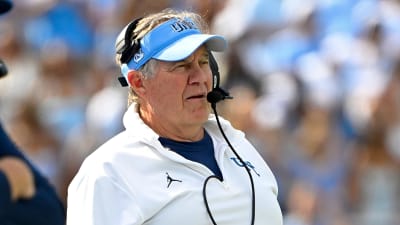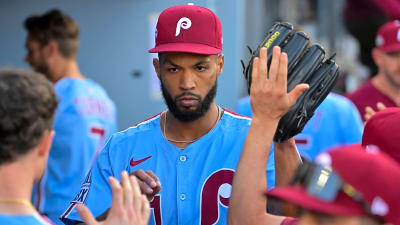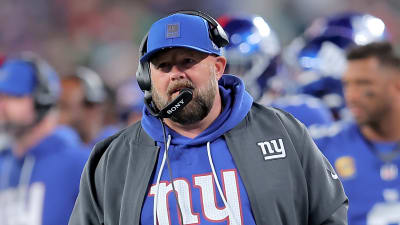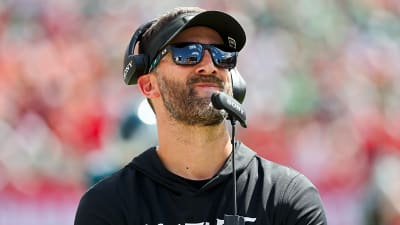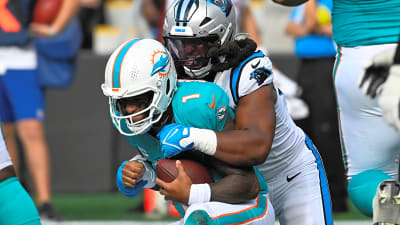This week in Lazio history we have the first Serie A game, Tommaso Maestrelli’s birthday and a few memorable wins.
Date: Sunday, October 6, 1929
Venue: Stadio Rondinella, Rome
Fixture: Lazio Bologna 3-0
In the first Serie A game in Lazio’s history, the Biancocelesti crush Bologna.
Date: Sunday, October 7, 1973
Venue: Stadio Romeo Menti, Vicenza
Fixture: Vicenza Lazio 0-3
Lazio start the season well by thrashing Vicenza with goals from Chinaglia, Re Cecconi and Garlaschelli
Date: Sunday, October 8, 1933
Venue: Stadio PNF, Rome
Fixture: Lazio Padova 3-2
The Biancocelesti win after a rollercoaster finale with a last minute Pastore goal
Date: Sunday, October 10, 1937
Venue: Stadio San Siro, Milan
Fixture: Milan Lazio 2-2
Lazio manage to draw thanks to an incredible own goal
Date: Monday, October 10, 2022
Venue: Stadio Artemio Franchi, Florence
Fixture: Fiorentina Lazio 0-4
A very cynical Lazio bring home the three points. Fiorentina played well but missed a lot of chances.
Date: Sunday, October 6, 1974
Venue: Stadio Olimpico, Rome
Fixture: Lazio Cesena 2-1
Lazio began the defence of their first-ever Scudetto in assured fashion, defeating Cesena 2–1 before a jubilant Stadio Olimpico crowd, the Biancocelesti playing for the first time in their 74-year history with the tricolour badge proudly stitched upon their shirts.
Before the kick-off, skipper Pino Wilson hoisted the championship trophy aloft to warm applause, a reminder of last season’s triumph under Tommaso Maestrelli. The manager retained the backbone of his title-winning side, making only one change — new signing Roberto Badiani stepping in for Vincenzo D’Amico.
The home side were quickly into their stride, though Cesena, far from overawed, met them head-on. In the 20th minute, a swift break saw Giorgio Chinaglia thunder a shot against the crossbar, moments after Martini had grazed the upright with a crisp effort. At the other end, Giuliano Bertarelli — the visitors’ outstanding performer — twice tested Felice Pulici, the Lazio goalkeeper saving smartly on both occasions.
The breakthrough arrived in the 25th minute. Luciano Re Cecconi slipped a low ball into Chinaglia’s path and the centre-forward, having outpaced Paolo Ammoniaci, struck first time beyond Lamberto Boranga. With the lead secured, Lazio began to flow, hemming the Romagnoli side into their own half.
A defensive lapse on 31 minutes almost cost Cesena dearly when a wayward back-pass fell to Renzo Garlaschelli, whose audacious lob from 30 yards crashed against the top of the crossbar. The second goal did come before the interval: Chinaglia’s free kick dropped to Sergio Petrelli, who controlled on his chest and drove the ball home from close range.
At 2–0, the champions looked set to run away with it. But injuries to Wilson and Petrelli early in the second half slowed the tempo, and Cesena seized their chance. In the 51st minute, Giampiero Ceccarelli’s cross from the right was met by Bertarelli’s well-placed header to halve the deficit.
The visitors might have drawn level when Giorgio Rognoni broke free of Wilson’s attentions and bore down on goal, only for Pulici to save bravely at his feet. Battista Festa also came close, but again the Lazio goalkeeper proved equal to the task.
Chinaglia, a constant threat, was denied a third by Boranga late on after being set up by the restored D’Amico, who had replaced Franco Nanni in the 74th minute.
The result keeps Lazio level with the early pace-setters, especially as Juventus and Inter both suffered shock defeats, Milan were held at home, and only Napoli among the heavyweights claimed victory. For the champions, it was a performance that recalled the best of last season — disciplined at the back, inventive in midfield, and always dangerous through Chinaglia’s finishing touch.
On October 7 Tommaso Maestrelli would have been 102. He is the greatest manager Lazio have ever had and has a lot in common with another great that recently passed away, Sven-Goran Eriksson.
Tommaso Arturo Maestrelli was born in Pisa, on October 7, 1922. He was the son of a station master for the state railways so, in his childhood, he lived in several towns in Italy before settling in Bari in 1935.
Tommaso then joined the Bari youth set up. He was a midfielder and in 1938 he moved up to the first team squad under manager József Ging. He made his debut at 16, in February 1939, in an away defeat to Milan. It was his only game and the Biancorossi finished 11th in Serie A. In these early days he was nicknamed “Carta velina” (Tissue paper) due to his thin physique.
He stayed with the “Galletti” for nine more seasons, including the war pause, playing 146 league games with 20 goals.
The war years were not kind on Maestrelli. He answered the call up and was sent to the Balkans. He suffered a leg injury when a grenade exploded near him and he got hit by a splinter. He was then captured by the Nazis and went through some tough times before being liberated by Tito’s partisans, who gave him the nickname “Maestrellovic” and whom he stayed with for a while. When he returned home fortunately his leg gradually healed and he was ready to play again.
In 1948-49 he joined Roma. The Giallorossi finished 14th under manager Pietro Baldassare. Maestrelli played 29 league games with 4 goals and both derbies were draws.
The season ending was however tragic for Italian football. The great Torino, who had won 5 consecutive scudetti between 1942-43 and 1948-49, died in an air crash on May 4, 1949. Returning from a friendly against Benfica in Lisbon, the plane carrying the whole team crashed into the wall at the back of the Basilica of Superga which is on a hill near Turin. All 31 people on the flight died. These included the players, coaching staff, a few journalists and the flight crew.
Tommaso Maestrelli was supposed to be on that plane. Despite the fact that he was playing for Roma at the time, he had been invited by Valentino Mazzola to join the team for the friendly match. Maestrelli did not make it because he was unable to renew his passport in time.
He stayed another two years with the Giallorossi making 95 league appearances. The 1950-51 season was his last with Roma. This time Roma were relegated, finishing 19th, the first Roman club to do so.
With Roma in Serie B, Maestrelli joined Lucchese in Serie A. The “Pantere” finished 18th and were relegated after a playoff (Triestina 0-1, in Bergamo). He stayed on in Serie B but the Rossoneri were relegated again. They got through six managers including Tommaso as player-manager for three games. He played 22 league games.
In 1953, at 31, he returned to Bari in Serie D and in four years made 73 appearances with one goal. The Biancorossi won the Serie D Scudetto in his first season and the following year won promotion again with the same manager.
At 34 he then retired and went into coaching, something he had already done at Lucchese in 1953.
At international level he won one cap for Italy, in 1948 against Denmark.
He started as assistant coach for six years at Bari. In 1964 he had his first real experience as head manager at Reggina in Serie C. In his first year he got the Reggini promoted as champions. He then stayed three more seasons in Serie B, finishing 4th, 9th and 9th again.
In 1968-69 he moved to Foggia in Serie B. The “Satanelli” finished 8th. The following year he led the Rossoneri to promotion to Serie A in 2nd place. The squad included a young Alberto Bigon (Lazio 1980-82) and future Lazio Luciano Re Cecconi (1972-77 and Scudetto winner before his tragic death).
In Serie A in 1970-71 he was unable to keep the Rossoneri up and they were relegated in 14th place. They did however beat Lazio 5-2 and Roma 1-0 at home and drew with Juventus and Inter. Foggia also played good football despite their fate.
In 1971-72 he joined Lazio in Serie B. He was not initially welcomed too well. The players and fans had got used to Juan Carlos Lorenzo’s histrionic and theatrical ways and here came a calm character from the provinces who had just been relegated himself and had also played for rivals Roma. Maestrelli had the intelligence to first win over charismatic leader Giorgio Chinaglia. Then with patience, gentle ways, dialogue, balance and not least results he convinced everyone.
Things started well with Lazio beating Roma 1-0 in the Coppa Italia and then qualifying for the second group phase to be played in the spring /summer of 1972. The Biancocelesti then won promotion back to Serie A in 2nd place.
In 1972-73 he was joined in Rome by Re Cecconi and Lazio sold Giuseppe Massa but also signed Mario Frustalupi, Renzo Garlaschelli, Sergio Petrelli and Felice Pulici. The Biancocelesti went extremely close to winning the Scudetto, battling with Juventus and Milan until the last game and winning both derbies. Lazio played an innovative style of play based on the Dutch way but also the Austrian vertex system of the 1930’s (the constant interchange of positions between players).
In 1973-74 came his masterpiece. Lazio won the Scudetto. In the summer he managed to convince the Lazio president Umberto Lenzini to keep all the key players, starting from Chinaglia. A wonderful team with strong internal rivalries who however came together on the Sunday to play great football. On the 12th of May 1974 a Chinaglia penalty against Foggia at the Olimpico gave Lazio their first historic title.
In 1974-75 Lazio finished 4th but in March Maestrelli’s life changed. He fell ill and was diagnosed with liver cancer. The team was under shock and collapsed 1-5 against Torino, playing with tears in their eyes. Lazio would never be the same. Faithful Bob Lovati took over for the last five games.
In 1975-76 Giulio Corsini became manager but clashed with the players especially Chinaglia who wanted to spend more time in the USA where his family now lived. Corsini was replaced and then surprisingly Maestrelli returned, seemingly in better health after various therapies.
It was a difficult season. In April, Chinaglia finally left with Maestrelli’s permission who considered Giorgio like a son. Lazio only avoided relegation in the last game of the season with a dramatic 2-2 draw in Como. It was a miraculous feat considering how the season had panned out. It would be his last gift to Lazio.
The cancer had not gone away and the following season he was unable to continue as manager. He took on the job of sporting director, with Luís Vinicio as head coach, but his energies were fading. On November 26 1976, after Lazio had defeated Roma, he went into a coma. Tommaso Maestrelli died on January 2 at 2.45 p.m. Rome was in mourning and the Lazio world shattered.
Maestrelli is considered Lazio’s best manager ever. He is the most respected and the most loved. He has almost cult status. “Tom”, as he was known, will be revered forever, without him Lazio’s Scudetto would have been impossible.
His greatest virtue was his ability to unite a bunch of crazy characters, divided into clans during the week, into a formidable, compact and spectacular team on match day. He did so with his intelligence, his mellow character, his flexibility, his deep understanding of human psychology all combined with a superb footballing brain.
To Lazio players he was a coach, a father, a friend, a priest and more. He created a family at Lazio. His two young twins were often present at the training sessions, he often invited Chinaglia to have dinner with his wife and four kids, he flew to Germany during the 1974 World Cup to speak to Giorgio after his controversial substitution against Haiti, he had the human touch.
To Lazio fans he is simply “Il Maestro”. His name is sung to the heavens every home game, as it is in the official Lazio song. The line more or less goes, “Come on Lazio we cannot falter, the Maestro is up above watching us” (it rhymes in Roman…). There have been several books written about him and even a play.
Sadly, three of his children have also passed away from Tommaso’s same illness. His grandchildren also play football, Alessio is a defender for Ternana in Serie C while Andrea plays for Arzachena (Sardinia) in the 6th tier.
Maestrelli is buried in the Prima Porta cemetery in north Rome.
A few years after Giorgio Chinaglia died, Giancarlo Oddi’s wife said to the Lazio scudetto defender “what is Giorgio doing so far away in the US? He should be buried alongside Maestrelli here in Rome”. To note is that there is a need for a special permission to have non-family members buried in the same tomb. It took a while but it was arranged. When Pino Wilson died, his son James, asked Massimo Maestrelli if his father could be buried alongside Giorgio and Tommaso. That too was arranged.
“Where in the world can you find two players buried with their manager?” asked Oddi in a recent documentary on the 1974 scudetto.
Only at Lazio.
Because this is what it means to be Laziale.
- Ugo Ciabattini, 8/10/1908, forward, Italy, 14 appearances, 2 goals (1926-27, 1929-30)
- Francesco Fonte, 8/10/1965, midfielder, Italy, 49 appearances, 1 goal (1984-87)
- Henglebert Koenig, 8/10/1920, forward, Austria, 103 appearances, 79 goals (1942-47)
- Roberto Badiani, 9/10/1949, midfielder, Italy, 226 appearances, 7 goals (1974-79, 1981-83)
- Alessandro Iannuzzi, 9/10/1975, forward, Italy, 7 appearances, 1 goal (1995-96, 1998-99)
- Renzo Burini, 10/10/1927, forward, Italy, 148 appearances, 40 goals (1953-59)
- Julio Cruz, 10/10/1974, forward, Argentina, 30 appearances, 4 goals (2009-10)
- Jean-Daniel Akpa Akpro, 11/10/1992, midfielder, Ivory Coast, 55 appearances, 1 goal (2020-22)
- Samuel Gigot, 12/10/1993, defender, France, 23 appearances, 2 goals (since 2024)
- Umberto Lombardini, 12/10/1920, forward, Italy, 77 appearances, 36 goals (1940-41, 1943-48)
- Carlo Perrone, 12/10/1960, defender, Italy, 83 appearances (1977-83)
- Luigi Polentes, 12/10/1944, defender, Italy, 144 appearances, 1 goal (1971-77)
- Nestor Sensini, 12/10/1966, defender/midfielder, Argentina, 39 appearances, 2 goals (1999-00)
This Article Was Written by Dag Jenkins & Simon Basten from Lazio Stories. More Information on the Above Matches and Players can be found on LazioStories.com.
More must-reads:
- USMNT builds momentum thanks to newfound French connection
- After rough outing vs. Broncos, it's time for Jets to give up on the Justin Fields experiment
- The 'Team USA men's basketball coaches' quiz
Breaking News
Trending News
Customize Your Newsletter
 +
+
Get the latest news and rumors, customized to your favorite sports and teams. Emailed daily. Always free!
